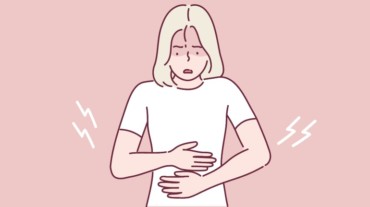
Ever felt uncomfortable after a meal? Well, if this discomfort is a regular feature of your life, you’ve got to know the cause behind it. Now, the reason could be that what you ate was not right, or that your digestive system isn’t in the best shape, but it could also be a combination of the two.
The symptoms associated with poor digestive health include acidity, reflux, bloating, stomach pain, infections and in some cases you may experience migraines as a result of continued gastrointestinal distress. After all, the mind and gut have an integral connection that most of us are not aware of.
You see, ensuring that the contents on your plate contain optimum nutrition from the highest quality ingredients is imperative, and that in turn will ensure a happy gut. Hence, at the root of all our digestive issues is the nature of our food. What that means is that we are not eating the food that is meant for the gut.
Consuming a diet that is based more on current trends rather than what is biologically more suited to the body is what is generally observed. For example, we regularly come across people who tell us that they consume milk to reduce their acidity. Upon asking, we’re told that their parents told them about this cure!

Well, the truth is that milk won’t reduce acidity but instead cause more damage given its highly acidic effect on the gut. It is the cold temperature of milk that gives temporary relief but on a cellular and clinical level, it is ranked next to meat on the list of acidic foods.
The only solution to it is eating fresh homemade food. We’re going to highlight some changes you will need to make for a healthy gut and a boost to your overall health:
1. Let’s start by first eliminating the usual suspects. You will definitely need to cut out processed foods like bread and sugar. Replace them with whole grains, millets and cereals like ragi, jowar, emmer wheat and oats, to name a few.
2. Instead of consuming genetically modified foods like soy and its derivatives, take other protein-rich vegetarian foods like peas, broccoli and mushrooms. The soluble and insoluble fibres will help improve the gut microbiome which will, in turn, promote gut health.
3. Adding garlic and asafoetida (hing) to your daily pulses and legumes will ensure the bloating and flatulence are kept in check.
Also, watch:
Select Topics of your interest and let us customize your feed.
PERSONALISE NOW4. The consumption of animal-based protein causes inflammation and bloating. You can eliminate or reduce the consumption of milk-based foods and meats to ensure that your gastrointestinal tract stays healthy and clean. Instead, consume alternates like almond milk and nuts.
5. Adding herbal tea with some ginger, ajwain, turmeric and black pepper to your diet will also help reduce the bloating. In fact, these condiments and spices are easily available in every Indian kitchen. We don’t need to go out and purchase exotic ingredients and spend more on the next grocery outing to solve the problem of getting our daily nutrients.
Accomplishing just this much will ensure a happy gut!